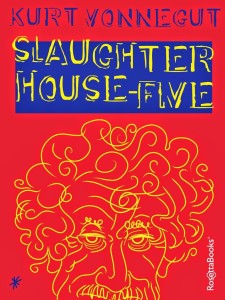
As I mentioned in my last blog, I’m a fan of author Kristen Lamb. She has done much to inform and motivate writers. Especially regarding how technology has shaped and influenced modern day writing and publishing trends.
In a recent blog, she discusses Five Simple Ways to Finish a Book. A big complaint of mine, as I live my life as a writer, is finding the time to do what I love most—writing science fiction. Lamb offers two hilarious bits of observation.
Finding time has always been a challenge. While the modern world keeps promising to help us with this ‘finding time’ thing… it’s ALL LIES. — Kristen Lamb
If we want to excel at finding time, we need to accept that we have yet to figure out how to manipulate the space-time continuum to our advantage. Laundry and dishes have, but they’ve thus far refused to share their technology. — Kristen Lamb
The Dark Hours
As I fight for the right to write and struggle to find the time, I remember what Lamb wrote and I impart motivation to self with quotes from beloved authors who have stood the test of—what else—TIME.
Fans and critics alike hail Kurt Vonnegut as one of the most important contemporary writers of the twentieth century and have anointed him as a dark humor commentator on American society. (Lamb reminds me of his type of humor.)
His 1969 novel Slaughterhouse Five soared to the top of the New York Times best seller list after its release. It resonated among readers because of its anti-war sentiments during the Vietnam war.
And if anyone had a right to complain about not having time, Vonnegut qualifies. In 1958, his sister died of cancer two days after a train accident claimed the life of her husband. Vonnegut and his wife took in their three young sons. As anyone with kids knows, kids take priority and time goes the way of laundry, dishes, and missing socks.
“So It Goes”
During the fifties, Vonnegut struggled to become recognized for his writing. After his novel, Player Piano—which reviewers considered of little importance—he grappled to complete his second contracted novel.
With a growing family, and no profitable novels to date, he often took on odd jobs for additional income. He even opened up a Saab car dealership with a partner, but it went bankrupt by the end of the year.
Vonnegut battled depression and attempted suicide in 1984. His novels Breakfast of Champions and Slapstick received less than stellar reviews. A reviewer of Breakfast of Champions said “[it] lacks substance and seems to be an exercise in literary playfulness.”
A review of Slapstick in The New York Times said of Vonnegut “[he] seems to be putting less effort into [storytelling] than ever before,” and that “it still seems as if he has given up storytelling after all.”
Ouch. Those of us who live life as a writer know we try our hardest to put our very best out there. We never give up on the storytelling, and I’d bet Vonnegut didn’t either.
Even with such criticism, Vonnegut continued to do what he loved. His writing career spanned 50 years. There is much to be said about fighting for the right to write and fighting for the time to write. We struggling writers can follow Vonnegut’s lead and keep on keeping on, though the obstacles are many and that damn missing sock will never be found.
Vonnegut’s Advice
If you want to really hurt you parents, and you don’t have the nerve to be gay, the least you can do is go into the arts. I’m not kidding. The arts are not a way to make a living. They are a very human way of making life more bearable. Practicing an art, no matter how well or badly, is a way to make your soul grow, for heaven’s sake.
Sing in the shower.
Dance to the radio.
Tell stories.
Write a poem to a friend, even a lousy poem.
Do it as well as you possibly can.
You will get an enormous reward.
You will have created something.—Kurt Vonnegut, A Man Without a Country
Vonnegut’s Eight Rules For Writing

Vonnegut says:
Now lend me your ears. Here is Creative Writing 101.
- Use the time of a total stranger in such a way that he or she will not feel the time was wasted.
- Give the reader at least one character he or she can root for.
- Every character should want something, even if it is only a glass of water.
- Every sentence must do one of two things—reveal character or advance the action.
- Start as close to the end as possible.
- Be a Sadist. No matter how sweet and innocent your leading characters, make awful things happen to them—in order that the reader may see what they are made of.
- Write to please just one person. If you open a window and make love to the world, so to speak, your story will get pneumonia.
- Give your readers as much information as possible as soon as possible. To hell with suspense. Readers should have such complete understanding of what is going on, where and why, that they could finish the story themselves, should cockroaches eat the last few pages.
(Vonnegut noted that Flannery O’Connor broke all these rules except the first, and that great writers tend to do that.)
5 Less Known Facts About SlaughterHouse-Five

Many consider Slaughterhouse-Five, Vonnegut’s most influential and popular work. It is semi autobiographical and references his experience during WWII. He was part of a group of American prisoners of war who survived the bombing in an underground slaughterhouse meat locker used as an ad hoc detention facility.
Slaughterhouse-Five is the sixty-seventh entry to the American Library Association’s list of the “Most Frequently Challenged Books of 1990–1999” and number forty-six on the ALA’s “Most Frequently Challenged Books of 2000-2009.”
It continues to be controversial. In August 2011, Republic High School in Missouri banned the book. The Kurt Vonnegut Memorial Library countered by offering 150 free copies of the novel to Republic High School students on a first come, first served basis. (I love this.)
In an interview for the Paris Review, Vonnegut commented on the fact that his books were being thrown out of school libraries all over the country. “I’ve seen letters to small-town newspapers that put Slaughterhouse-Five in the same class with Deep Throat and Hustler magazine. How could anybody masturbate to Slaughterhouse-Five?” he said.
Last, So it goes, Vonnegut’s pensive, albeit somewhat melancholy, chorus appears 106 times in Slaughterhouse-Five.
Other Great Quotes From Vonnegut
I have been a sore headed occupant of a file drawer labeled ‘science fiction’… and I would like out, particularly since so many serious critics regularly mistake the drawer for a urinal. — Wampeters, Foma & Granfalloons, 1974
I urge you to please notice when you are happy, and exclaim or murmur or think at some point, ‘If this isn’t nice, I don’t know what is.’— “Knowing What’s Nice,” In These Times, 2003
I do feel that evolution is being controlled by some sort of divine engineer. I can’t help thinking that. And this engineer knows exactly what he or she is doing and why, and where evolution is headed. That’s why we’ve got giraffes and hippopotami and the clap. — interview on the Daily Show, 2005
I don’t know about you, but I practice a disorganized religion. I belong to an unholy disorder. We call ourselves ‘Our Lady of Perpetual Astonishment.’ — A Man Without a Country, 2005
And one of my favorites, because often family members of writers are hesitant to read the author’s works. (I know this to be true from personal experience.)
My relatives say that they are glad I’m rich, but that they simply cannot read me. — the Paris Review interview
Where do you find the time to write? Who or what keeps you motivated? I love hearing from you.
- Urban Legend in the Making - April 22, 2024
- Coghlan’s Traveling Coffin Urban Legend - April 4, 2024
- Richmond Vampire Urban Legend - March 7, 2024

4 replies on “Kurt Vonnegut, Finding Time. Living Life As A Writer.”
“It continues to be controversial. In August 2011, the novel was banned at the Republic High School in Missouri. The Kurt Vonnegut Memorial Library countered by offering 150 free copies of the novel to Republic High School students on a first come, first served basis.”
I love stuff like that. When people try to close minds and individuals fight back to give people their choice in what information they want to access. Such an amazing way to fight censorship.
What is so controversial in his books? I am not familiar with Kurt Vonnegut. Your blog mentions he is controversial but not why.
Good point Dillo.
Slaughterhouse-Five is controversial because of the profanity, adult situations (sex), and is called obscene by closed-minded individuals ready to trample freedom of thought.
From Wikipedia:
“It was one of the first literary acknowledgments that homosexual men, referred to in the novel as ‘fairies,’ were among the victims of the Nazi Holocaust.[17]”
Though it sounds like a historical novel, it is actually science fiction—why I find its history so fascinating.
Thank you for commenting and asking such a great question.
Thank you for enlightening me Clara. It is wonderful he acknowledged homosexuals as victims in the holocaust. So few people seem to give recognition to the homosexual men and woman who were persecuted during the holocaust. I may have to pick up Slaughterhouse-Five.
Hi Dillo,
Thank you for returning.
I am currently re-reading Vonnegut’s Slaughterhouse-Five. You would love his quick wit and way of telling his story.
If you read it, we can compare notes.
So it goes.